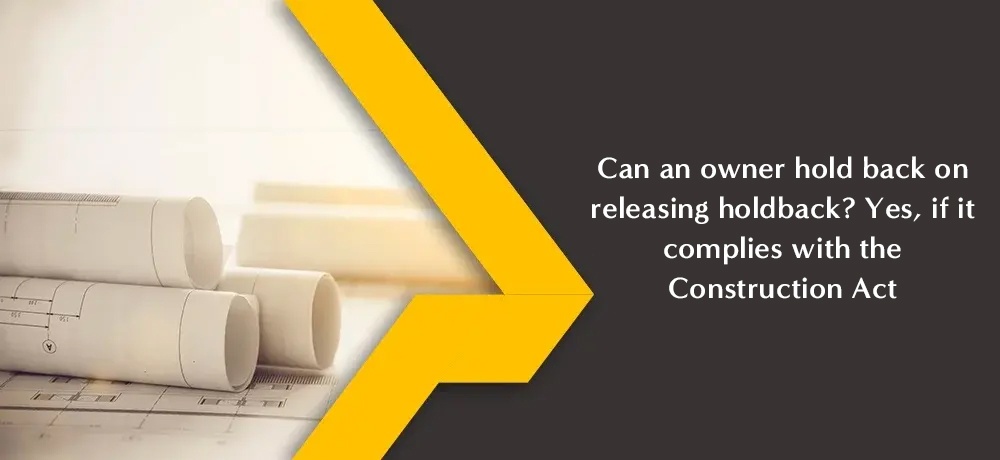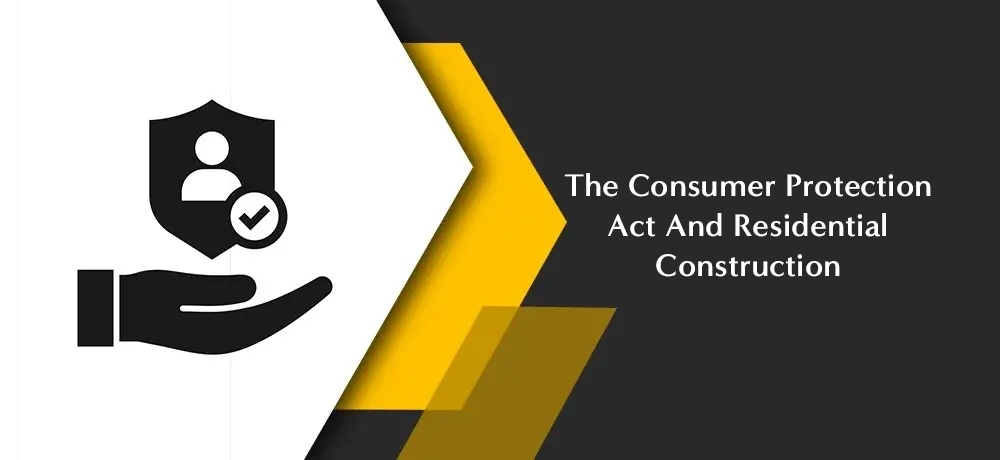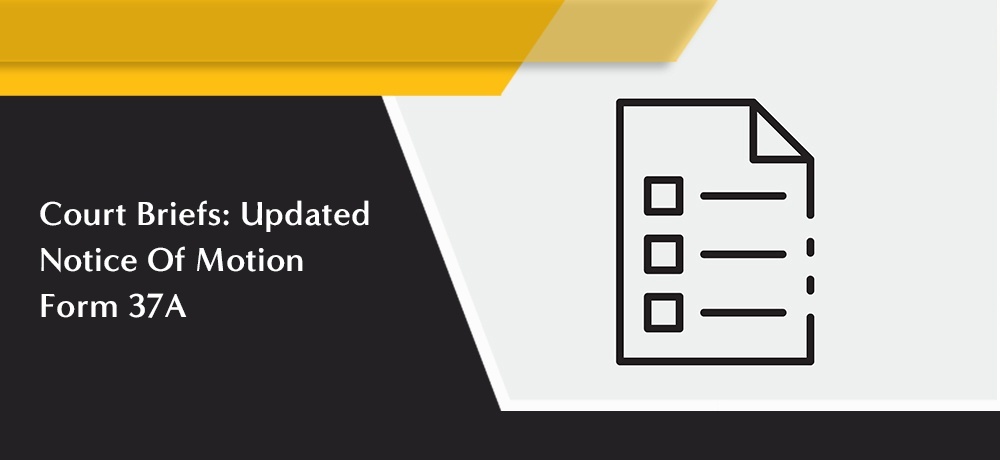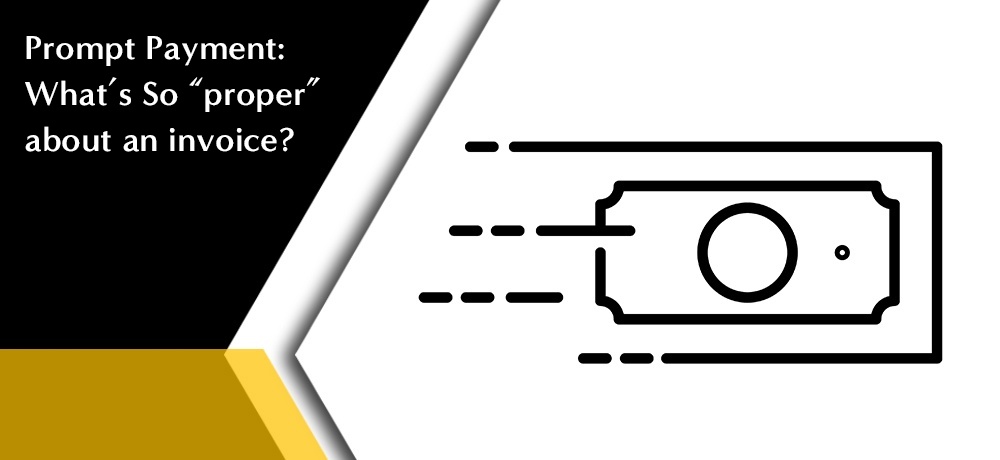CCDC contracts are ubiquitous in the construction industry. They are used for all manner of different project types and sizes, so much so that familiarity with these documents is almost becoming required to do business in Ontario’s construction industry.

-
Compare and Contract: CCDC2 and CCDC 5A

CLICK HERE TO READ THE FULL ARTICLE »
-
When Does a Limitation Period Run for a “Running Account”?

An important deadline for any litigation is the limitation period, which is the final date by which a lawsuit for specific a claim must be commenced. The limitation period is important because, if missed, the plaintiff may be barred from ever bringing a lawsuit to seek recovery of that claim.
CLICK HERE TO READ THE FULL ARTICLE »
-
ONE YEAR

One year ago today, Construct Legal opened during a snow storm that pretty much shut down Toronto. It was a memorable first day.
It has been a journey filled with highs, lows, and everything in between. It hasn't been easy, but it has been rewarding.
CLICK HERE TO READ THE FULL ARTICLE »
-
ADJUDICATION BASICS

Adjudication is a new method of dispute resolution contained in the Ontario Construction Act. It allows parties to a construction contract to enforce a right of payment without going to court.
See the fact sheet Prompt Payment & Adjudication 101 to determine if your contract qualifies for adjudication.
CLICK HERE TO READ THE FULL ARTICLE »
-
Can an owner hold back on releasing holdback? Yes, if it complies with the Construction Act

An owner in a construction contract is required to retain 10% of the price of the services and materials as they are supplied under the contract. The holdback is to be retained until all liens that may be claimed against the holdback have expired, been satisfied, discharged or otherwise provided for under the Construction Act. The requirement to retain holdback applies from large infrastructure projects to small home renovations.
CLICK HERE TO READ THE FULL ARTICLE »
-
Court Briefs: You Got Served (really, this new Form 8B says so)

A recent amendment to the Rules of the Small Claims Court allows for a lawyer or paralegal to prove service of a document by way of a Certificate of Service (Form 8B) if the lawyer or paralegal served the document or caused it to be served and is satisfied that service was effected. In cases such as this,
CLICK HERE TO READ THE FULL ARTICLE »
-
Fireside Chat with Faren Bogach

If you want to learn more about Faren Bogach and her experience practicing in private practice with three young kids, check out Prudence Tsui's blog,
CLICK HERE TO READ THE FULL ARTICLE »
-
The Consumer Protection Act and Residential Construction

Residential construction and renovation can be complicated. So can the contracts. Contractors and homeowners alike should understand when the Ontario Consumer Protection Act, 2002 (the CPA) applies and what its requirements are. The recent Ontario Superior Court of Justice case of The Fifth Wall Corp. v Tonelli, 2022 ONSC 6590 helps to clarify when the CPA applies to residential construction and renovation contracts.
CLICK HERE TO READ THE FULL ARTICLE »
-
Season’s Greetings from Construct Legal

We are edging closer to celebrating our first anniversary at Construct Legal. We are grateful to our clients and referral sources for trusting us with their business. We wish everyone a relaxing holiday season.
CLICK HERE TO READ THE FULL ARTICLE »
-
Owners: Take Notice of the Notice of Non-Payment

“But the payment certifier hasn’t approved the invoice yet” is no longer a reason for an owner to refuse to pay a contractor’s proper invoice.
Any owner must pay a contractor within 28 days of receiving the contractor’s proper invoice, unless the owner gives the contractor a Notice of Non-Payment within 14 calendar days of receiving the proper invoice.
CLICK HERE TO READ THE FULL ARTICLE »
-
Lien on Us: Timelines for a Lien

The golden rule when dealing with construction liens is that they must be preserved and perfected on time. Preserving a lien requires registering a claim for lien on title to the property or in certain cases, giving a copy of the claim for lien through the proper channels. Perfecting a lien is the next step in the process and requires commencing an action to enforce the lien and potentially registering a certificate of action on title to the relevant property. Ontario’s courts have repeatedly confirmed that they have no ability to revive an expired lien if a deadline is missed—so it is essential for contractors and suppliers to be aware of the timelines associated with their lien rights.
CLICK HERE TO READ THE FULL ARTICLE »
-
Our Team Photos!

It has taken almost 11 months, but we finally have our firm photos on our website! Please check out our photos and read our bios to learn a bit more about our team.
CLICK HERE TO READ THE FULL ARTICLE »
-
A Reprise for Reprisal Clauses: How Have Courts Treated Reprisal Clauses in Construction Procurement?

What are reprisal clauses and what is their effect?
A reprisal clause is a provision in an owner’s procurement documents, or, for a government owner, its by-laws or procurement policy, allowing the owner to reject or exclude any bidders or proponents that are in a dispute with the owner.
CLICK HERE TO READ THE FULL ARTICLE »
-
We are officially welcoming Tara Hobel to Construct Legal!

Tara is our firm’s Legal Assistant Extraordinaire!
CLICK HERE TO READ THE FULL ARTICLE »
-
Heavy Construction Association Taking County of Essex to Court

The Heavy Construction Association of Windsor is challenging a decision by the County of Essex to obtain an estimate directly from a contractor following a procurement process where no contract was awarded. Procurement processes are complex but important, especially for public projects. Parties involved in procurement should ensure they follow all processes and policies carefully. Otherwise, bidders may be excluded or, as in this case, owners may face legal action in court.
CLICK HERE TO READ THE FULL ARTICLE »
-
Determining the Enforceability of a Notice to Vacate Lease

In Bennett Law Chambers Professional Corporation v. Camcentre Holdings Inc., 2022 ONCA 658, the landlord issued its tenant a notice to vacate a commercial lease on the basis that it wanted to demolish the property in order to build condos.
CLICK HERE TO READ THE FULL ARTICLE »
-
Court Briefs: Updated Notice of Motion Form 37A

Preparing to serve and file a notice of motion with the Ontario Superior Court of Justice? Make sure you’re using the most up-to-date Form 37A available on the Rules of Civil Procedure Forms website (http://ontariocourtforms.on.ca/en/rules-of-civil-procedure-forms/).
CLICK HERE TO READ THE FULL ARTICLE »
-
Prompt Payment: What’s so “proper” about an invoice?

The prompt payment regime under the Construction Act, requires "prompt" payment of invoices submitted by the contractor to the owner. A contractor is defined in the Construction Act as the party contracting with or employed directly by the owner or an agent of the owner to supply services or materials to an improvement. This means that a contractor includes anyone with a direct contract with the owner, for example: an architect, designer or supplier.
The triggering event for prompt payment is the contractor giving the owner a “proper invoice”, i.e. a written bill or other request for payment. After given a proper invoice, an owner is required to:
CLICK HERE TO READ THE FULL ARTICLE »
-
CDAO Survey Results for Prompt Payment & Adjudication in Ontario

The Construction Design Alliance of Ontario (CDAO) has some interesting survey results on the adoption of prompt payment and adjudication in Ontario, including that:
- 77% of public projects;
- 53% of private projects
CLICK HERE TO READ THE FULL ARTICLE »
-
Lien on Us: What Types of Work Can You Lien For?

One of the first questions a contractor or supplier looking to lien a property needs to answer is whether the services they provided are lienable under the Construction Act. At a high-level, the Construction Act states that a person must supply materials or services to an improvement before that person is entitled to a lien.
CLICK HERE TO READ THE FULL ARTICLE »



















